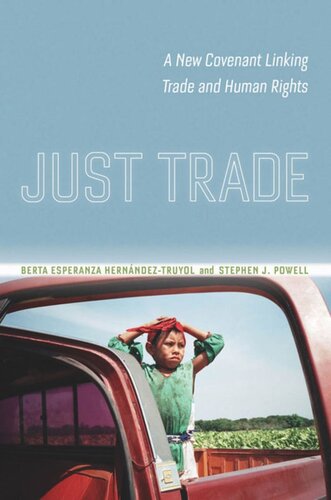

Most ebook files are in PDF format, so you can easily read them using various software such as Foxit Reader or directly on the Google Chrome browser.
Some ebook files are released by publishers in other formats such as .awz, .mobi, .epub, .fb2, etc. You may need to install specific software to read these formats on mobile/PC, such as Calibre.
Please read the tutorial at this link: https://ebookbell.com/faq
We offer FREE conversion to the popular formats you request; however, this may take some time. Therefore, right after payment, please email us, and we will try to provide the service as quickly as possible.
For some exceptional file formats or broken links (if any), please refrain from opening any disputes. Instead, email us first, and we will try to assist within a maximum of 6 hours.
EbookBell Team

4.7
96 reviewsDocuments Annex: http://www.nyupress.org/justtradeannex/index.html
While modern trade law and human rights law constitute two of the most active spheres in international law, follow similar intellectual trajectories, and often feature the same key actors and arenas, neither field has actively engaged with the other. They co-exist in relative isolation at best, peppered by occasional hostile debates. It has come to be a given that pro-trade laws are not good for human rights, and legislation that protects human rights hampers vibrant international trade.
In a bold departure from this canon, Just Trade makes a case for reaching a middle-ground between these two fields, acknowledging their co-existence and the significant points at which they overlap. Using examples from many of the 35 nations of the Western Hemisphere, Berta Esperanza Hernández-Truyol and Stephen J. Powell combine their expertise to examine human rights policies involving conscripted child labor, sustainable development, promotion of health, equality of women, human trafficking, indigenous peoples, poverty, citizenship, and economic sanctions, never overlooking the very real human rights problems that arise from international trade. However, instead of viewing the two kinds of law as polar and sometimes hostile opposites, the authors make powerful suggestions for how these intersections may be navigated to promote an international marketplace that embraces both liberal trade and liberal protection of human rights.